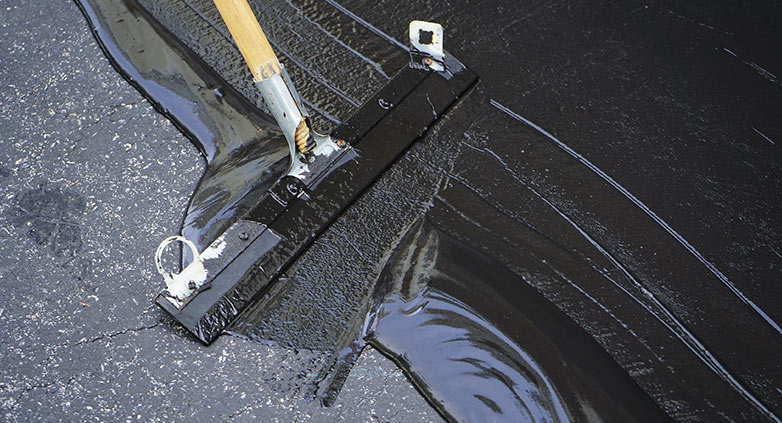How Long Before You Can Drive on a Sealed Driveway?
Maintaining your driveway is vital for its durability and resilience, and when considering how long before you can drive on a driveway, exercising patience beyond the application is crucial. This article delves into the factors impacting this waiting period, offering insights for a resilient driveway that stands the test of time.
So, how long before you can drive on a driveway? The duration varies; typically, it takes 12-24 hours in summer, with a recommended 48-hour wait for an excellent finish. Weather, type, and season all play vital roles in this process. Understanding these factors is crucial for ensuring an effective process.
Moreover, driveway maintenance extends beyond application; it involves a delicate dance between nature and materials. Explore drying times, ranging from asphalt to acrylic, considering weather nuances and conducting tactile tests. This guide unlocks the secrets to optimal driveway care. Buckle up for a journey into the world of a resilient driveway.
Drying Times for Your Asphalt Driveway Sealer
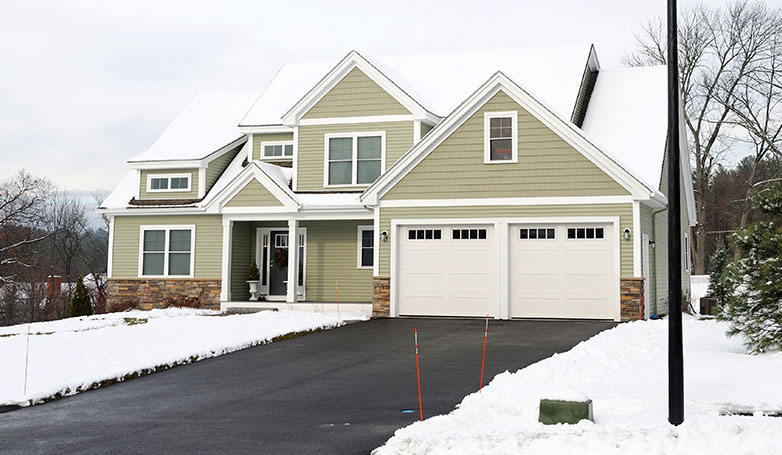
Considering the dynamic nature of weather conditions, the timing of applying sealer to your asphalt driveway plays a crucial role in achieving optimal results. Whether it’s the scorching heat of summer or the chilly days of winter, understanding the recommended waiting periods before use is essential. Let’s delve into the specifics of these timelines to ensure the longevity and visual appeal of your sealed asphalt surface.
- If you apply sealer on your asphalt driveway during summer when there will be full sunlight exposure in the high heat of the day, you can walk on it within 2 to 4 hours.
- Sealed asphalt can be driven on after 12 to 24 hours in the heat of the summer. However, we recommend you allow 48 hours to maintain an excellent looking finish.
- If you carry out the application of sealer under cloudy, humid weather conditions, or the winter season, we recommend you wait for at least 72 hours before using your asphalt driveway. Because driveways sealers usually dry like paint, the surface may appear dry, but the underneath may still be wet.
When is the Best Time of the Year to Seal your Driveway?
This depends on some factors, such as:
- Humidity
- Temperature
- Season
If you are curious about the best time of the year to seal coat an asphalt driveway, this section will guide you through finding the perfect answer.
Summer
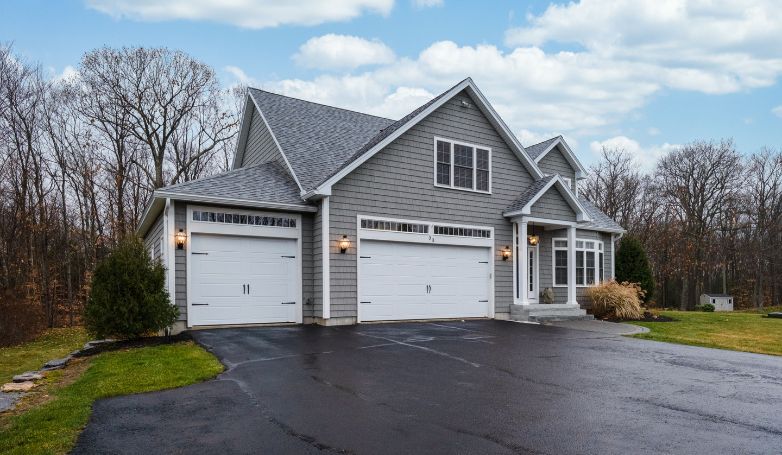
Based on the general recommendation, summertime is the ideal time of year to seal your asphalt driveway due to the low relative humidity and high ambient temperature in many places during the period. The length of hours or days it takes asphalt sealer to dry and cure fully depends on temperature and humidity. Hence, summertime is perfect (although not necessarily the rule of thumb) for applying a sealer to driveways or parking lots.
The primary reason the summer period is recommended for sealing driveways or parking lots is due to the fast curing times the warmer weather brings. Sometimes, you may not want to wait beyond 24 hours for your driveway to cure fully, especially if you own a business with asphalt parking lots.
Spring
Spring, spanning from April to June, proves ideal for driveway maintenance. The milder temperatures and lower humidity, as opposed to summer, create conditions conducive to optimal drying of the sealer. This moderate weather enables efficient application and curing, ensuring a smooth and effective process without excessive moisture.
Fall
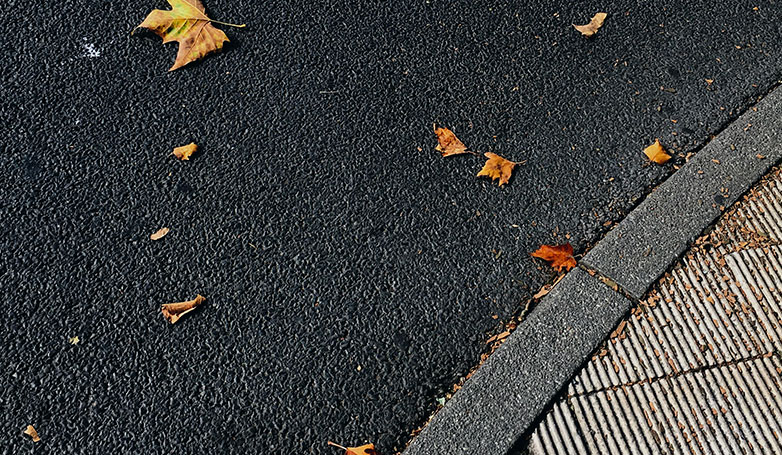
Fall, particularly in September and October, offers a balance of moderate temperatures and lower humidity. This season is advantageous for driveway sealing as the weather is often stable, promoting proper curing. It’s essential to complete the process before temperatures drop significantly, ensuring the sealer has sufficient time to dry and cure effectively.
Winter
Sealing a driveway in winter is generally not recommended, especially in regions with harsh cold climates. Extremely low temperatures can impede the drying process, leading to ineffective sealing. If it’s unavoidable, choose a milder day and ensure the surface is dry before application. Keep in mind that winter conditions may compromise the overall quality and longevity of the seal.
6 Steps for Sealing Your Driveway
The below steps are how to prepare for sealing your driveway:
- Select a reasonable span of days
- Measure
- Obtain your materials
- Intensive Cleaning
- Power-wash
- Make Repairs
Although it is difficult to seal your asphalt driveway in the heat of the summer, it is necessary to ensure its integrity is maintained. Sealing your driveway should be part of its routine maintenance for many reasons. It will not only serve as a protective layer against several damaging spills, chemicals, and UV damage, but it also increases its curb appeal and overall makes it last for a more extended period.
1. Select a Reasonable Span of Days
Before embarking on the driveway sealing process, it’s essential to identify a suitable span of days. Begin by thoroughly examining weather forecasts, seeking a stretch of three to four consecutive days characterized by consistently hot weather and, equally crucial, a forecast devoid of rain. This meticulous planning ensures that the sealer has ample time to dry and cure effectively, setting the stage for a resilient and long-lasting finish.
2. Measure
Precision is key when it comes to driveway maintenance. Take the time to measure your driveway meticulously, keeping detailed records. This step is invaluable when you’re ready to acquire the necessary materials for the project. By having accurate measurements on hand, you ensure a seamless and efficient process, minimizing the risk of excess or insufficient supplies and contributing to the overall success of your maintenance endeavor.
3. Obtain your Materials
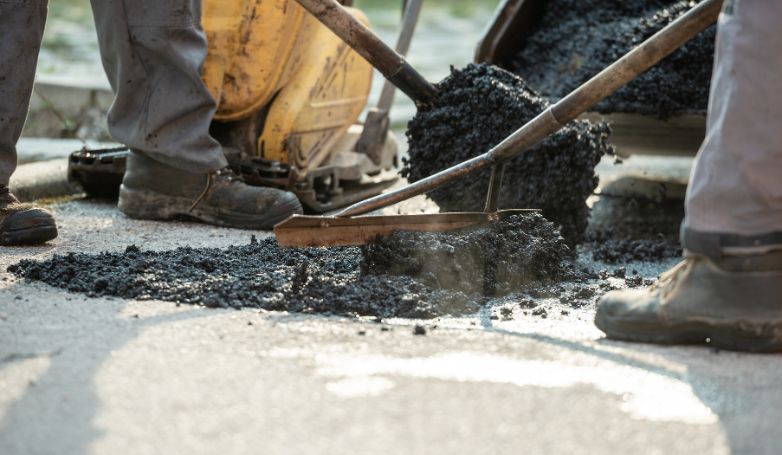
Gather the essential materials before diving into your driveway maintenance project. Ensure you have the following items on hand:
- Asphalt patch
- Driveway sealer: Opt for the five-year sealer for enhanced value and durability.
- Brush and squeegee attachment
Stick to the asphalt patch, quality sealer, and the right application tools for a successful and long-lasting driveway upgrade.
4. Intensive Cleaning
Prior to commencing the sealing process, invest time in intensive cleaning the day before. This critical step involves a meticulous approach. Start by clearing your driveway of any impediments, ranging from dust and dirt to loose debris, oil stains, leaves, and other unwanted elements. This preparatory cleaning ensures a clean and receptive surface for the sealant, enhancing its adherence and overall effectiveness in safeguarding your driveway.
5. Power-Wash
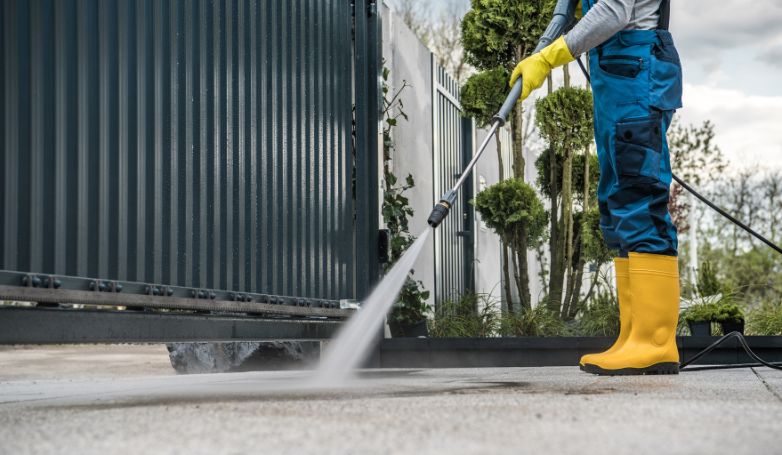
Power washing is vital for the success of sealing your driveway. While your driveway can look clean, there are possibly gas by-product deposits that may be present. If your driveway has some secret material or film left, the coating will not stick. So, ensure you give the driveway enough time to dry after the wash before application.
6. Make Repairs
Another task to be done the day before sealing your driveway is to fill all the cracks in it. After that, you can take the asphalt patch you purchased, then follow the instruction for string, and apply where you find a crack.
Read more: HOW TO REPAIR CRACKS IN CONCRETE DRIVEWAYS – BEST CRACK FILLERS
How Often Should You Seal Your Driveway?
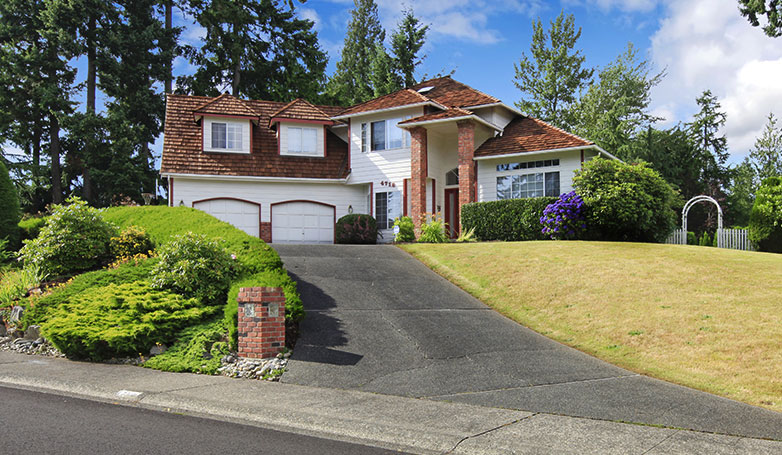
Some people like to seal their driveway more often to ensure it keeps looking smooth and well-maintained. But generally, it is recommended that you reseal your asphalt driveway every 2-3 years in the summertime or spring to preserve their appearance and shield them from cracks and oil damage.
However, choosing the best time to reseal your driveway is highly variable and depends on the climate in which you live. You must recognize the state of the environment in which you reside.
You should also evaluate the quality of the sealer you will use for the pavement. As you know, the higher the sealer’s quality, the longer the pavement lasts.
FAQs about How Long Before You Can Drive on a Sealed Driveway?
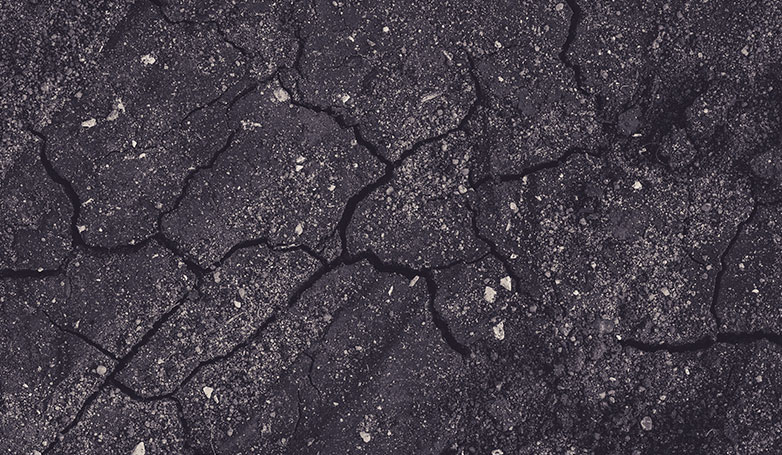
Sealcoating is a crucial step in maintaining the longevity and aesthetics of your driveway. To help you understand the process and its implications, here are some frequently asked questions about how long before you can drive on a sealed driveway.
Why Should I Sealcoat My Driveway?
Your driveway, like anything else, is degraded by regular natural activities. Your asphalt driveway will start cracking, chipping, and eroding, whether due to the presence of sun, snow, rain, wind, or just the wear and tear that originates from daily foot traffic and vehicle.
Sealing the driveway refurbishes those holes and cracks, giving a new look to your driveway that will keep it strong for years. It would be best if you thought of sealing your driveway as painting your house’s walls or obtaining regular maintenance for your car.
How Long Does Seal Coating Last?
In reality, it relies on a few different variables, such as the level of traffic in your driveway or parking lot and exposure to sunlight, gas, or oil. However, seal coating typically lasts for a few years if properly cared for.
Many business owners and homeowners wait as long as ten years before they consider resealing their driveways and lots. But the industry standard is for driveways or lots to be replaced every two to three years to ensure longevity.
Why is Sealing Driveways Necessary?
Sealcoating your driveway gives you the chance to provide it with protection that will make it last longer and resist degradation. When you apply a seal to your driveways, it can repel water, which is the most hazardous agent for degrading asphalt surfaces. Besides water, other factors like salt, oxygen, chemicals, and sunlight cause corrosion and cracking.
What Happens if You don’t Seal your Driveway?
The sealer is composed almost solely of asphalt. This thin coating will be attacked by UV rays, and it will start to harden and fail. If you don’t remove your shoes on coming home, you will track the asphalt indoors, which will discolor your vinyl floors and carpet.
Conclusion
Maintaining your asphalt driveway or parking lots is an excellent way to ensure apparent advantages. Protective layers act against harmful spills, UV damages, and chemicals, enhancing your lot’s curb appeal and overall facilitating a longer-lasting duration. However, when considering how long before driving on a driveway, it’s crucial to observe some waiting hours to maintain a great-looking finish. This article explores the factors influencing this waiting period, providing insights for a resilient driveway that stands the test of time.

